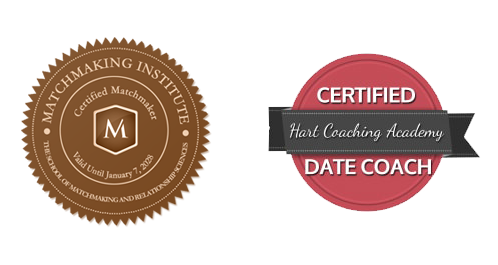The Paradox of Choice in Dating: How to Choose & Commit

Have you ever felt like finding love should be easier with so many options out there?

Between dating apps, social media, and countless opportunities to meet new people, it can feel like you have endless options of potential partners. But instead of bringing peace, all those choices can create anxiety, second-guessing, and hesitation to commit.
Welcome to the paradox of choice the modern dating dilemma where more options actually make it harder to choose, connect, and commit.
What Is the Paradox of Choice?
The “paradox of choice” is a psychological concept introduced by Barry Schwartz, who found that while having some choice empowers us, having too many can lead to feeling overwhelmed and dissatisfied.
When applied to dating, this means that the more profiles, people, and possibilities we encounter, the harder it becomes to make a confident decision. We may fear missing out on someone better, question our feelings, or avoid committing altogether. Instead of enjoying the excitement of getting to know someone, we start evaluating them against hundreds of hypothetical “what-ifs” and genuine connection takes a back seat.
How It Shows Up in Modern Dating
Modern dating, especially through apps, can feel like an endless scroll of faces. Think about the following below and see if this might be what you are experiencing:
- Swipe through dozens of profiles a day but rarely go on meaningful dates.
- Keep conversations light because you’re still “seeing what’s out there.”
- End a promising connection quickly because something about the person you haven't met starts to annoy you.
- Feeling anxious committing to one person because another “perfect” match might appear next week.
These are all symptoms of choice overload!! Instead of investing deeply in one person, many daters keep a “backup list,” continuously evaluating rather than experiencing. The problem? Honestly, you cannot build real connection while constantly comparing, continuing to talk or text to your "backup lists" daily or weekly. If you are doing this currently, it's time to take a step back and reflect.
The Paradox of Choice in LDS Dating
In the LDS dating world, this challenge can take on a spiritual dimension. Agency is the ability to choose, but it also comes with responsibility. Having choices is a good thing. It allows you to seek someone who aligns with your core values, life goals, and faith. But when the abundance of choice turns into indecision, distraction, or fear of missing out, it becomes a roadblock to genuine love. You might rationalize over and over why you keep waiting, when in reality, you might just be hesitant to commit because of the illusion of endless options. Real relationships require courage, effort, and faith.
Signs You’re in Choice Overload
If you’re wondering whether this sounds like you, here are a few signs:
- You’re dating several people casually and you don’t feel ready to narrow down you list to focus on one person.
- You’ve ended multiple relationships because “something better” might come along.
- You find yourself swiping or scrolling even when you’re already seeing someone promising. This is a sign!
- You struggle to feel peace about committing, even when your core values align.
- You feel anxious when someone likes you more than you like them not because they are wrong for you, but because you fear losing your independence.
Choice overload doesn’t mean you’re shallow or noncommittal it means you’re human. But recognizing it is the first step toward changing it and realizing it's time to make some changes.
How to Choose Well and Commit Wisely
1. Know your non-negotiables: Before you date seriously, identify your top three or four core values, such as faith, family goals, emotional maturity, integrity, etc. Let those guide your choices instead of superficial details like hobbies or height.
2. Limit your focus: You don’t need to talk to ten people to find one good match. Give one promising connection your full attention and see how it goes.
3. Be present, not perfect: No one will check every box including you! Focus on progress, not perfection. Look for shared growth, kindness, and compatibility in purpose, not just personality.
4. Commit to the process: Once you find someone who fits your values and sparks your interest, invest time and consistency. Give the person a fair chance.
5. Move forward with grace: If it doesn’t work, end it with kindness and clarity. But don’t retreat into endless swiping or emotional detachment. Each experience can prepare you for the right relationship if you are intentional about learning from it.
Final Thought
Love doesn’t flourish in endless options it grows when you choose someone. In a world that tells you there’s always something better around the corner, we hope you have the courage to say, “I’ve found someone good, and I’m willing to see where this goes.” Because sometimes, choosing well and committing wisely is what leads to the very best love story of all.











